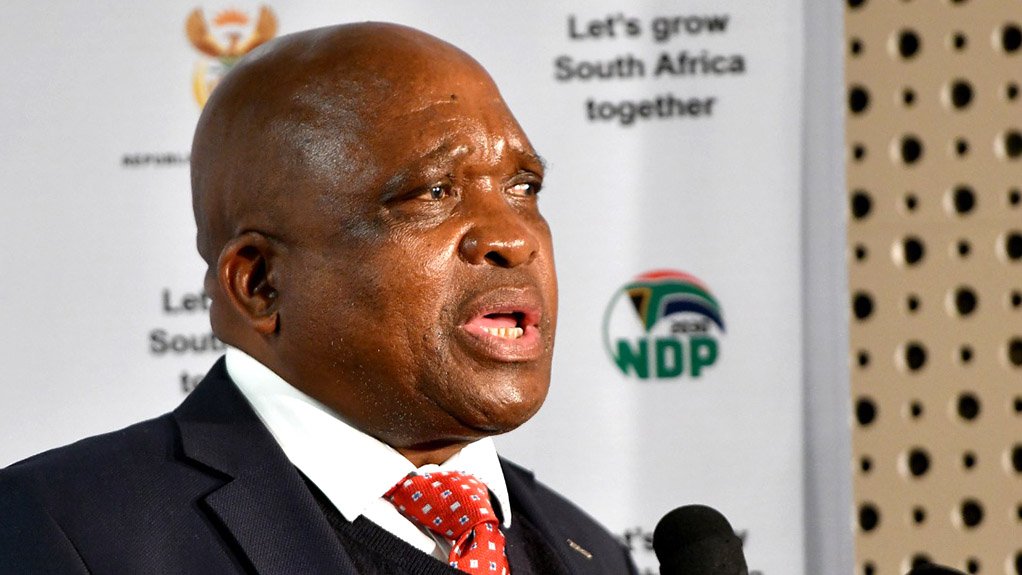The impact of the Covid-19 pandemic has led to significant reversals in the decline of tuberculosis cases, setting South Africa's fight against the disease back an estimated "12 years", Health Minister Joe Phaahla said on Tuesday.
Phaahla was speaking at the TB Indaba in Durban.
The event is linked to the South African Aids Conference, which starts in Durban this week.
Phaahla said while there had been an improvement in TB testing since 2022, when the Covid-19 social restrictions were relaxed, the impact on efforts to fight the bacterial disease had been severe.
"The Covid-19 pandemic and associated lockdowns have severely impacted TB services throughout the country. Between 2019 and 2020, the number of TB tests provided in South Africa decreased by 23%, and case notifications decreased by 25%," he said.
"There has been some recovery since 2022, but it is estimated that the pandemic has reversed 12 years of global progress against TB."
The minister said a TB recovery plan had been developed to find "people with undiagnosed TB", encourage them to seek and stay on treatment, and strengthen TB prevention efforts.
"Through the implementation of the TB recovery plan, we are starting to see improvements in TB testing, notification, and TB incidence. The number of GeneXpert tests done in 2019 was just over 2-million and decreased to 1.5-million due to Covid-19 in 2020. Since then, we have observed some recovery in TB testing, with 1.9-million tests done in 2021 and 2.5-million tests in 2022, which gives us signs that, indeed, this recovery plan will take us back to where we were before the pandemic," Phaahla said.
"In this regard, we are proud to report that the performance has been as follows: Between 2009 and 2021, the estimated TB incidence has decreased from 644 000 to 304 000."
He added that South Africa was at the forefront of TB research and development.
"There are some interventions and exciting developments. For the people with undiagnosed TB, we plan to screen one-million people, 60% PLHIV (people living with HIV) tested and notification of 215 900 patients through annual TB tests."
The department would also introduce a results notification system, notifying patients of results vis SMS, to improve the adoption of treatment, he said.
"We will soon be using new molecular diagnostic tests for TB. We plan to put 85% of the lab-diagnosed patients on treatment, and we wish to retain 86% of the drug-susceptible TB on the treatment programme."
Phaahla said a TB vaccine was advancing to a phase 3 trial in South Africa and that there had been promising results.
He said the department wanted to scale up the implementation of new preventive therapy to improve TB prevention and reduce transmission, especially among people in the same household.
If the National Health Insurance legislation was enacted, it would lead to stronger TB and HIV treatment, the minister said.
"We are pleased that the National Health Insurance (NHI) Bill has now proceeded to the National Council of Provinces, where a vote will be taken on Tuesday, after which we will enter an interesting phase of lives in health system management. A strong public health care system means strong TB and HIV services, strong health services closest to our people."
Phaahla said South Africa was currently on three key global lists which rank high-burden countries for TB in general, HIV-associated TB, and drug-resistant TB.
The World Health Organisation (WHO) estimates that over 110 000 people diagnosed with TB in South Africa died between 2020 and 2021. Since 2010, more than one-million South Africans are estimated to have died of the disease.
The minister said estimates in 2021 suggested that South Africa was still on track to meet the WHO's target of reducing the TB incidence rate by 50% by 2025.
EMAIL THIS ARTICLE SAVE THIS ARTICLE
To subscribe email subscriptions@creamermedia.co.za or click here
To advertise email advertising@creamermedia.co.za or click here











